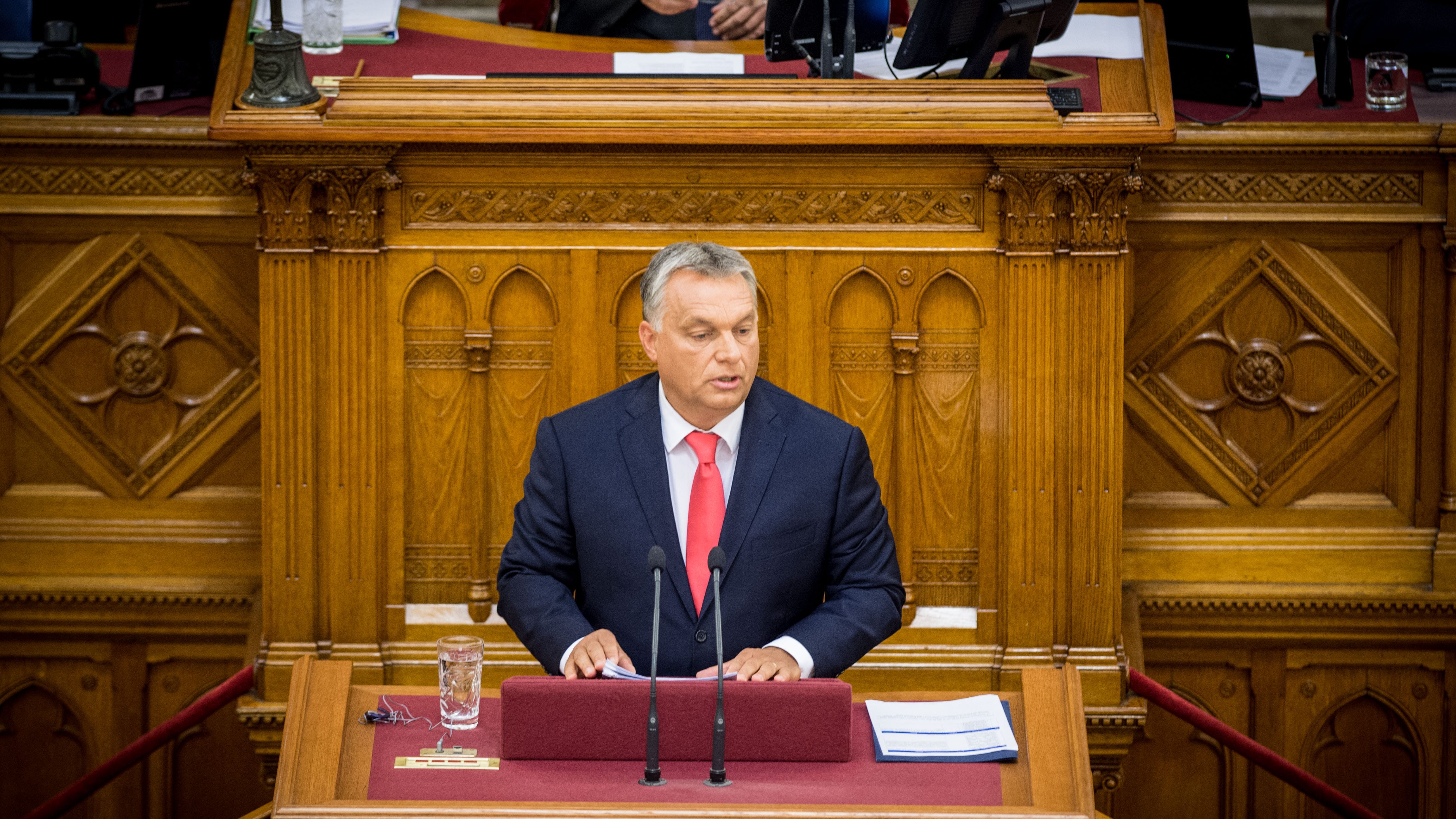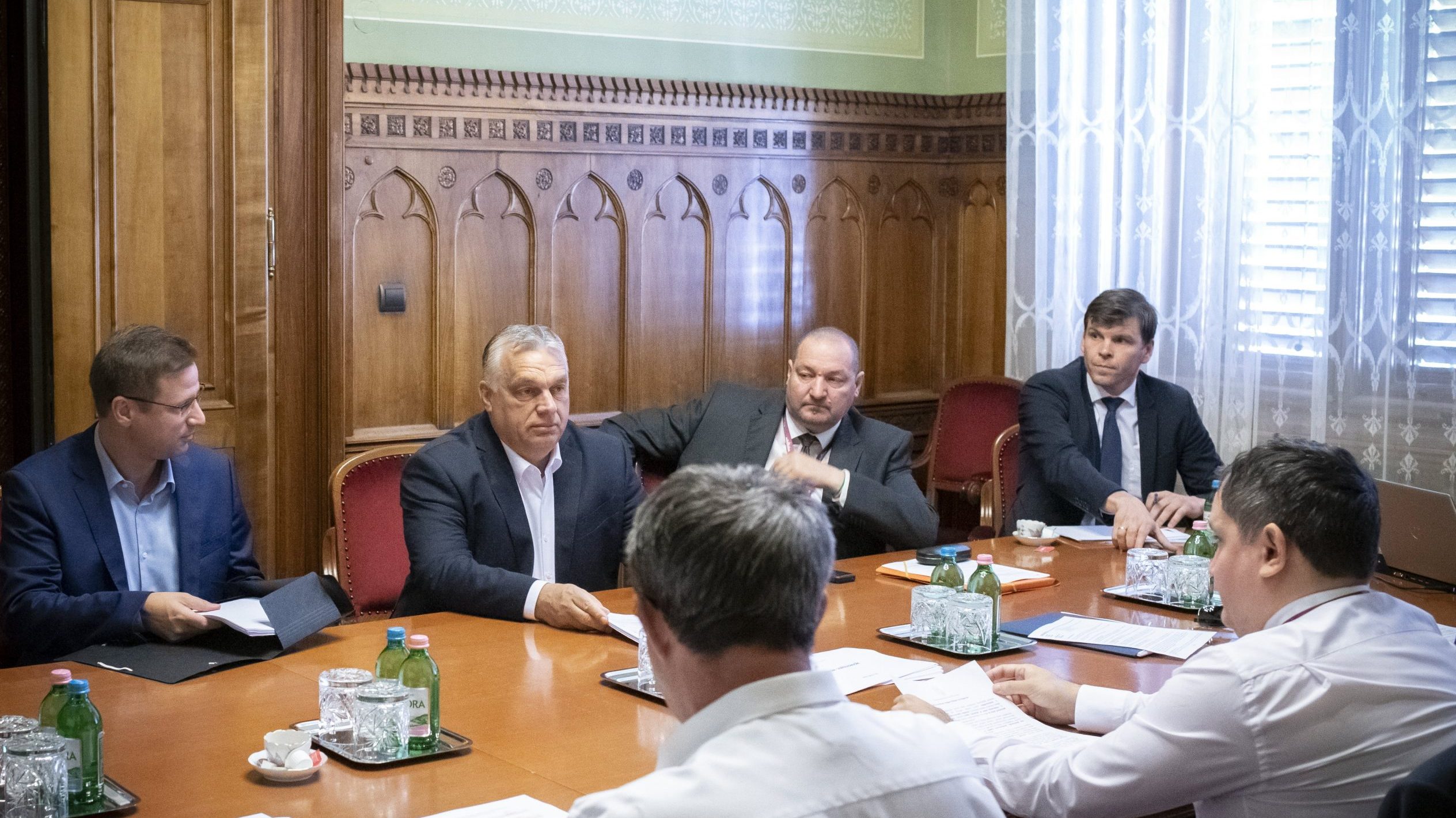
According to the Prime Minister, there are countries which now have mixed populations and which accept and approve of immigration – and even at times organise it. In such countries the percentage of Christians is decreasing – as the latest data on school enrolment in Austrian clearly shows. There is a sharp division between these states and countries such as Hungary, which insist on their security, way of life, and national, religious and cultural identity, he said.

Europe’s future depends on whether these two groups of countries respect the democratic will of each other’s peoples, he stressed, saying that “We accept that the immigrant countries decided to become immigrant countries. However, we are asking them to accept that we shall never be an immigrant country”.
“Today, the immigrant countries want to resolve the differences between the two groups of countries by suggesting that we, too, should become immigrant countries”, Mr. Orbán said, “and if we’re not prepared to follow that path, they will force themselves on us and compel us to do as they wish”. He said that this is the essence of the mandatory quota system, which he sees as the plan of George Soros, who devised it and published it under his own name. “This is what is being implemented by the Brussels bureaucrats, who, incidentally, are feeding out of Soros’s hand” , the Prime Minister said, adding that this is why the European Commission has tabled its latest proposal on a permanent and mandatory relocation system.
He announced that the parliamentary groups of Fidesz and the Christian Democratic People’s Party have asked the Government to launch a national consultation on the Soros Plan.
“I will present this proposal to the Government, asking for agreement”, said the Prime Minister, who encouraged everyone who appreciates the importance of the country’s independence, security, national culture and Christian roots to take part in the national consultation on the Soros Plan.

The Prime Minister went on to say that throughout the summer his Government had continued its battle against Brussels’ mandatory relocation plans. In his words, the mass population movement that has reached Europe is a consequence of a global realignment, which also coincides with “Islam’s latest global offensive”.
The EU, however, is pursuing a flawed immigration and foreign policy, he said, and persists in its mistaken ways. In consequence, today Europe is a continent which is not protecting its external borders, but opening them – which is yet another invitation to migrating masses.
“What we’ve seen so far has only been the warm-up”, said Mr. Orbán, who cited a NATO research institute’s prediction that by 2020 some 60 million people will have set out from Africa – the vast majority of them heading for Europe.
He stated that recurring acts of terrorism, a dramatic deterioration in public security, and the transformation of the demographic, religious and cultural composition of Europe are all consequences of Brussels’ flawed policy.
Mr. Orbán said that “It is from this that we seek to protect Hungary, Central Europe and – if still possible – the whole of the European Union”.

The Prime Minister also gave his appraisal of the country’s economic situation, stating that a workfare economy has been built, the economy is working, and Hungary is a country which is able to provide employment for every one of its citizens who wishes to work.
He highlighted the reduction of the national debt to below 74 per cent, the second quarter increase in GDP of 3.2 per cent, the rise of the number of people in employment to more than 4.4 million, and the fall in unemployment to 4.2 per cent. He noted that full employment is now well within reach, observing that those employed in public works schemes are gradually moving into private sector employment.
Mr. Orbán also stressed that pay rises mean that an increasing number of people will find it worthwhile to work in Hungary.
He indicated however, that, in parallel with boosting the competitiveness of businesses, it is necessary and possible to increase wages further. He added that there is still potential for pay rises in industry: in the construction industry, and in the retail and hospitality sectors.

He also mentioned that family policy continues to be at the centre of the Government’s efforts; this includes family taxation, child health care, education, sport, housing benefits and a job protection plan for families.
“The Hungarian government is pursuing a family policy, rather than an immigration and migration policy”, he said, pointing out that “the situation of families is improving, which means that our efforts have not been in vain”.
He went on to say that today Hungary is strong enough to provide free meals for 467,000 children in crèches, kindergartens and schools. Over the past seven years funding for children’s meals has increased by 150 per cent, he reported, and it will amount to HUF 74 billion this year and HUF 80 billion next year. He added that 85 per cent of all school students – more than one million – receive textbooks free of charge. He informed Members of Parliament that a school development programme has also been launched: 527 institutions in 400 settlements will be refurbished.
He further noted that the financial remuneration and recognition of teachers have been increased with the introduction of a career model for the teaching profession. While the situation is far from perfect, he said, it is hardly comparable with the state of affairs inherited from the previous government in 2010.

Observing that 500 Ukrainian children had been welcomed into Hungary during their summer holidays, the Prime Minister said that the decision by Ukrainian politicians to deprive Hungarian children of Hungarian-language education in the later years of elementary education is hurtful to Hungary. He asked: “What did these Hungarian children do to deserve this? What did their parents do to deserve this?”
Speaking about recent sporting events, he highlighted the World Aquatics Championships and the World Judo Championships, stating that “Budapest has entered the elite club of global sporting cities”. In his view, with the exception of the FIFA World Cup, the country is capable of hosting any world sporting event.

